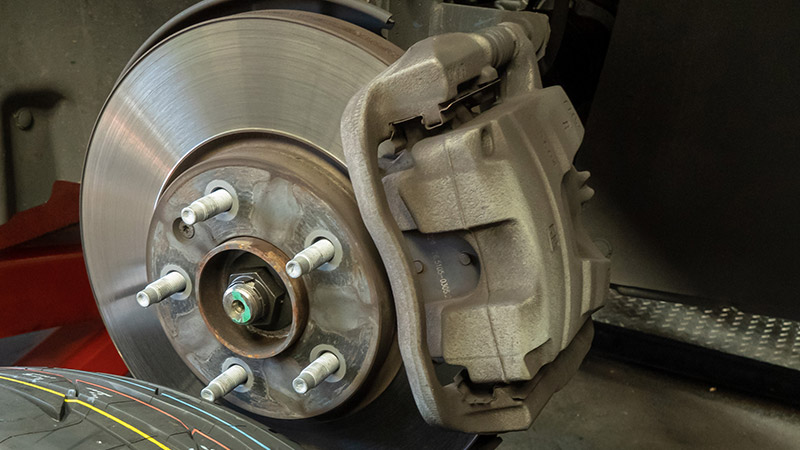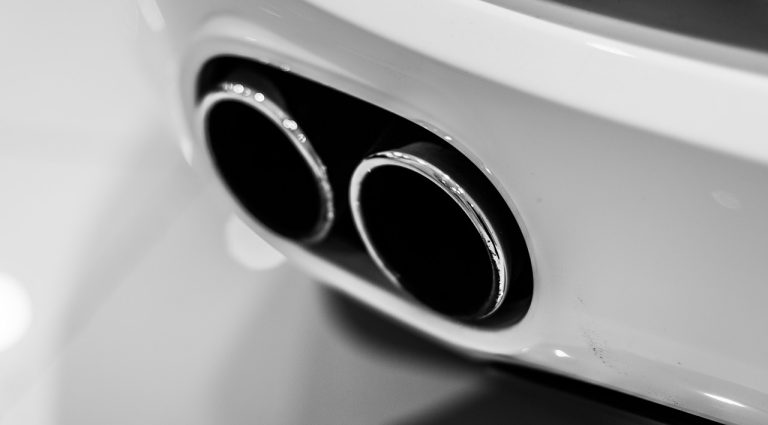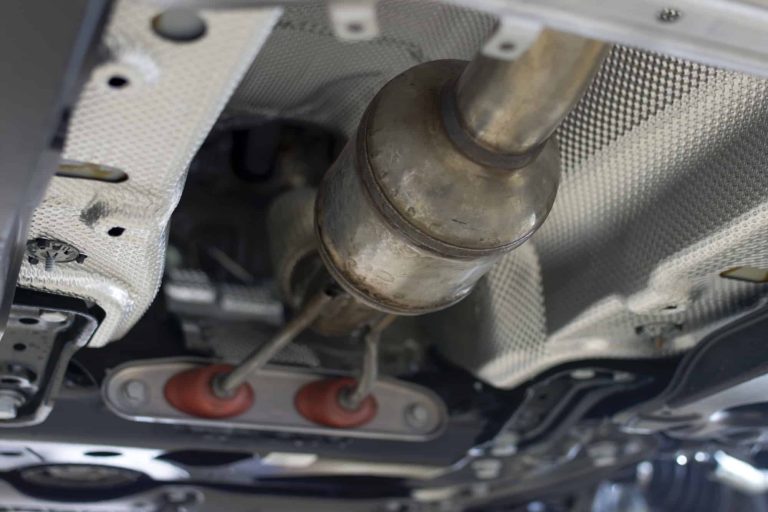Why Are My Brakes Spongy?
Brake issues can be a major cause for concern while driving. One of the common issues that drivers might encounter is spongy brakes. It can be scary to have a spongy brake as it impairs your ability to come to a complete stop when needed. But finding the root cause of the problem can help you resolve the issue quickly and efficiently.
In today’s blog, we’ll discuss the reasons behind spongy brakes, some easy troubleshooting tips, and the best course of action.
1. Air in Brake Lines: A Common Cause of Spongy Brakes
One of the common reasons for spongy brakes is having air in the brake lines. Air bubbles can cause the brake pedal to feel soft or spongy, as air compresses more easily than brake fluid. As the air pushes back, the brake pedal may sink to the floor. You might also notice that the brake pedal requires more pressure to come to a complete stop. If this is the case, you should immediately opt for a brake bleed. It’s best to get it done by a professional mechanic, who can remove all the air from the system and add fresh brake fluid.
2. Low Brake Fluid Levels and Why Your Brakes Feel Spongy
Another common cause of spongy brakes is having low brake fluid levels. Brake fluid is essential for transmitting force from the brake pedal to the brake calipers. Hence, low brake fluid levels can cause the brakes to feel spongy. You can check the brake fluid levels by opening the hood and locating the brake fluid reservoir. If the levels are low, top it off with the recommended brake fluid that is mentioned in the owner’s manual. This is a good reminder that regular maintenance, like changing your oil and filter, helps prevent small problems from becoming big ones.
3. Can Worn Brake Pads Make Brakes Spongy?
Worn-out brake pads can lead to spongy brakes as well. Worn brake pads not only reduce the stopping power but also cause the brake fluid to retain air. The air then enters the brake lines, causing the brakes to feel less responsive. You can visually inspect the brake pads by looking through the wheels. If the pad is less than a quarter-inch thick or has uneven wear, it needs to be replaced immediately. Also, cleaning your brake rotors can sometimes help improve braking performance — here’s how to do it without removing the wheels.
4. Faulty Brake Master Cylinder
The brake master cylinder is responsible for transmitting the pressure created on the brake pedal to the brake calipers. A faulty brake master cylinder reduces the force transmitted, resulting in a spongy brake. It’s best to get the brake master cylinder inspected by a mechanic for any leaks or other issues. If any irregularities are found, it’s best to replace the part entirely.
5. Clogged Brake Lines
Brake lines can become clogged with debris or rust, impeding brake fluid. This blockage reduces the pressure needed to apply the brakes, causing the brakes to feel spongy. If you suspect that your brake lines have clogs of any sort, you should visit a mechanic immediately for proper diagnosis.
Conclusion
Spongy brakes can be a significant safety concern while driving. If you experience spongy brakes, you should immediately investigate the root cause and take the necessary steps before hitting the road again.
By understanding the above possible causes, you can efficiently troubleshoot the issue and address it as necessary. Remember to always prioritize your safety while driving and address any brake concerns immediately. If you’re unsure, let a technician inspect your vehicle — routine car inspections don’t take long and can uncover hidden issues.







